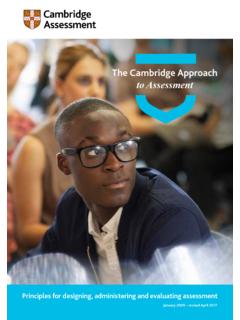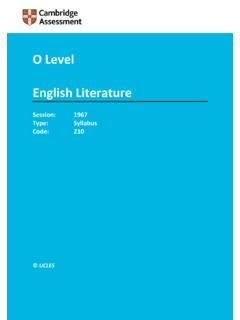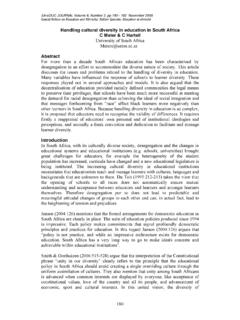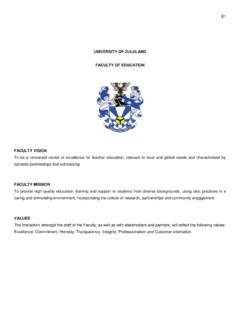Transcription of What is literacy? An investigation into definitions …
1 What is literacy ? an investigation into definitions of English as a subject and the relationship between English, literacy and being literate A Research Report Commissioned by Cambridge Assessment January 2013 2 Contents 1 Introduction .. 3 2 How definitions of English as a school subject have evolved .. 4 English in the 20th century .. 4 The impact of The National literacy Strategy .. 6 Current concerns about English .. 6 3 literacy .. 8 definitions of literacy .. 8 literacy across the 10 literacy a high-stakes issue in other countries .. 11 The limitations of utilitarian definitions of literacy .. 12 4 literacy and standards .. 14 5 Differently literate? .. 16 6 literacy in the digital age multiple literacies.
2 17 7 The relationship between English and literacy .. 19 8 Key points .. 20 9 Conclusion aspects for further consideration .. 21 10 References .. 22 3 1 Introduction This discussion document explores different models of English as a subject, with some consideration of historical perspectives, and how representations have changed over time. Different definitions of literacy , what it means to be literate and how views of literacy are evolving, in a period of considerable social and economic change, are also reviewed. The relationship between English as a subject and notions of literacy is explored and some recommendations offered about aspects that might be considered further in reconceptualising English and literacy for the 21st century.
3 The prime focus is on views of English and literacy within England, although there is also consideration, particularly in relation to views of literacy , of the perspectives of other countries, including Australia, the USA, New Zealand, Canada, Singapore and Finland. This paper attempts to draw out some key themes and ideas rather than offer a systematic and comprehensive review of all the relevant literature. 4 2 How definitions of English as a school subject have evolved English in the 20th century English as an academic subject is a relatively recent arrival: it has only had a prominent place in schools and universities since the late 19th century (Goodwyn, 2006) and it was 1920 when Leavis joined the newly founded school of English at Cambridge.
4 There seems to be widespread agreement that English is a difficult subject to define (Limbrick and Aikman, 2005) as it covers so many areas from the aesthetic (literature) to the functional (skills) (Laugharne, 2007) and views have been polarised about where the emphasis should lie. These views may be politically driven, and shift as different ideologies come into play (Laugharne, 2007): .. there have been broad oppositional shifts since the beginning of the twentieth century from reading (literature); to speaking and listening, language across the curriculum and the use of English in the 1970s and 1980s; to a focus on writing in the National Writing Project (NWP) (1985 1989) and grammar in the Kingman Report (1988). The strong legacy of the last two can still be seen in the National Curriculum English documents (DES and WO 1990; PfEE and WO 1995; DfEE 1999) and more recently, in England, in the National literacy Strategy (NLS) (1998) and literacy Framework.
5 ( ). It is also a subject, as Raban-Bisby et al (1995) assert, which has always attracted controversy. Holbrook (1961, ) declared that there were two broad aims of English as a subject the practical aims ( literacy skills) and English as means of achieving wholeness (a broader view of the subject). He specified minimum and maximum aims for each aspect. He also placed emphasis on the importance of the use of English for practical purposes being developed culturally , that is from the pleasure of the organised word in writing . He summarised this as follows: The way to develop mastery over English is to live within a rich context of its lively use, by reading, listening, and talking ( ). Holbrook also recognised the significance of English as medium and message, an aspect which contributes to the complexity of the definition process, and coined the well-known axiom Every teacher is a teacher of English because every teacher is a teacher in English ( ) (italics in original).
6 Although writing with particular reference to English in secondary modern schools, his views have relevance to English as a subject for all pupils. Burgess (2005) reminds us of the work of James Britton in the 1960s and 1970s and in particular the impact of Vygotskyan theory on English teaching: Britton s book on Language and Learning (1970) and the central theoretical chapter of the Bullock report (DES, 1975), the major post-war report on English 5 teaching in the UK, in which Britton played a substantial part, are both Vygotskyan in their orientation .. The focus was on how the immediacy of learning contributed to the sociocultural development of mind , what Burgess calls English as an intellectual project . Burgess notes that Britton was working in a context where the efforts of a generation of educators were to use the base of universities to put the cutting edge of work in social sciences and in educational research at the disposal of teachers ( ).
7 The emphasis at the time was to develop the intellectual base of teaching rather than manage the system through targets and objectives . Burgess also argues that the Kingman and Cox reports, produced after the Education Reform Act in 1988, carried forward much from Bullock. He adds: It is forgotten sometimes how much the making of the National Curriculum owes to earlier work, in its emphases on the processes of speaking and listening, reading and writing, and in its detail (ibid). The Cox Report (1991) summarised five views or models of English: Personal growth view Cross-curricular view Adult needs view Cultural heritage view (appreciation of literature) Cultural analysis view (critical understanding of the world and the cultural environment).
8 It was Cox s claim that English teachers gave these models equal weight but this is challenged by Goodwyn (2006), whose research suggests that it was the personal growth view , which many English teachers considered pre-eminent, with the cultural analysis view given more weight than the cultural heritage view . Marshall (1998, ) argues that there has been more debate around cross-curricular, adult needs and cultural heritage views of English because they form the basis of any discussion about standards, and more particularly, the way in which they are always described in terms of their decline . Cox (1991) describes literacy as being embedded in these views but placed in a broader context: They [the five views of English] acknowledge the utilitarian functions of English teaching, and yet place these in a wider cultural and imaginative framework (ibid, ).
9 He notes that English might encompass: Language use, language study, literature, drama and media education and that it ranges from the teaching of a skill like handwriting, through the development of the imagination and of competence in reading, writing, speaking and listening, to the academic study of the greatest literature in English. It was his view that this broadness poses problems, both for the identity of English as a distinctive school subject, and for its relations with other subjects on the school curriculum . He also raises the question of continuity in English what it looks like as a subject at different phases within the school curriculum, and indeed beyond. Since the Cox report, there have been two revisions of The National Curriculum Orders for English, based, it has been argued, less on research evidence and teacher consensus than on ideology and political imperatives (Marshall, 1998, Goodwyn, 2006).
10 However, it is The National literacy Strategy, introduced in 1997, and the standards agenda which have been the main influences on the model of English taught in 6 schools in the last fifteen years. This has heralded a shift from English as a broad-based subject, reflecting Cox s five views, to one dominated by notions of literacy and standards , which has left English as a subject in a state of some confusion about its identity, an issue which is pursued in more detail in the next section. Limbrick and Aikman (2005) summarise the complexity of the situation as resulting from the range of interpretations of what subject English is, and what it is for , the multiple conceptualizations of literacy , and what is involved in becoming literate and the fact that for some people it seems that English and literacy are almost interchangeable, for others they are distinguishable fields of learning.














